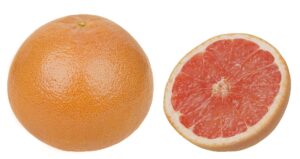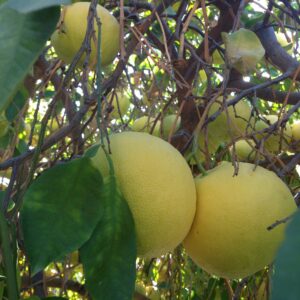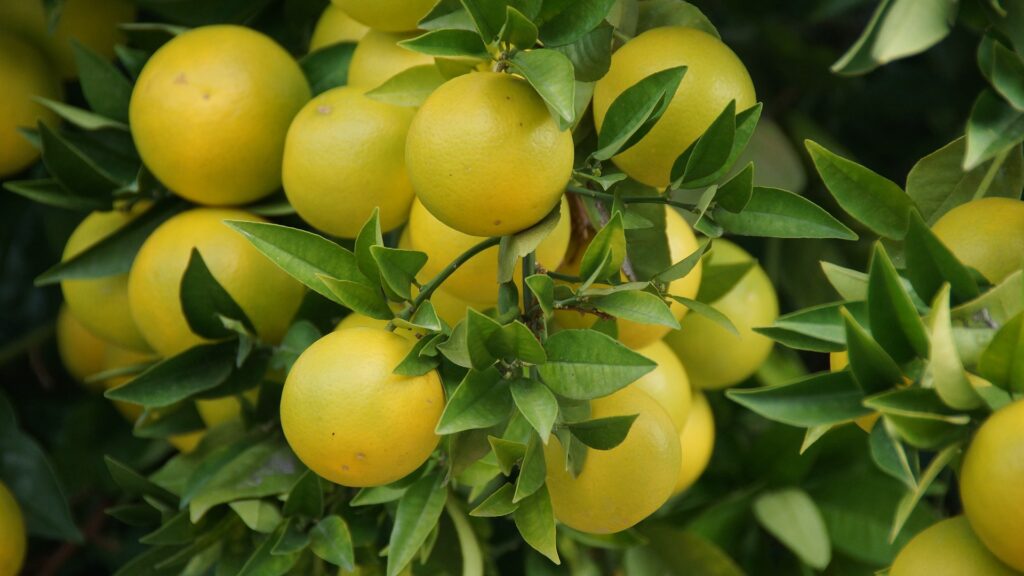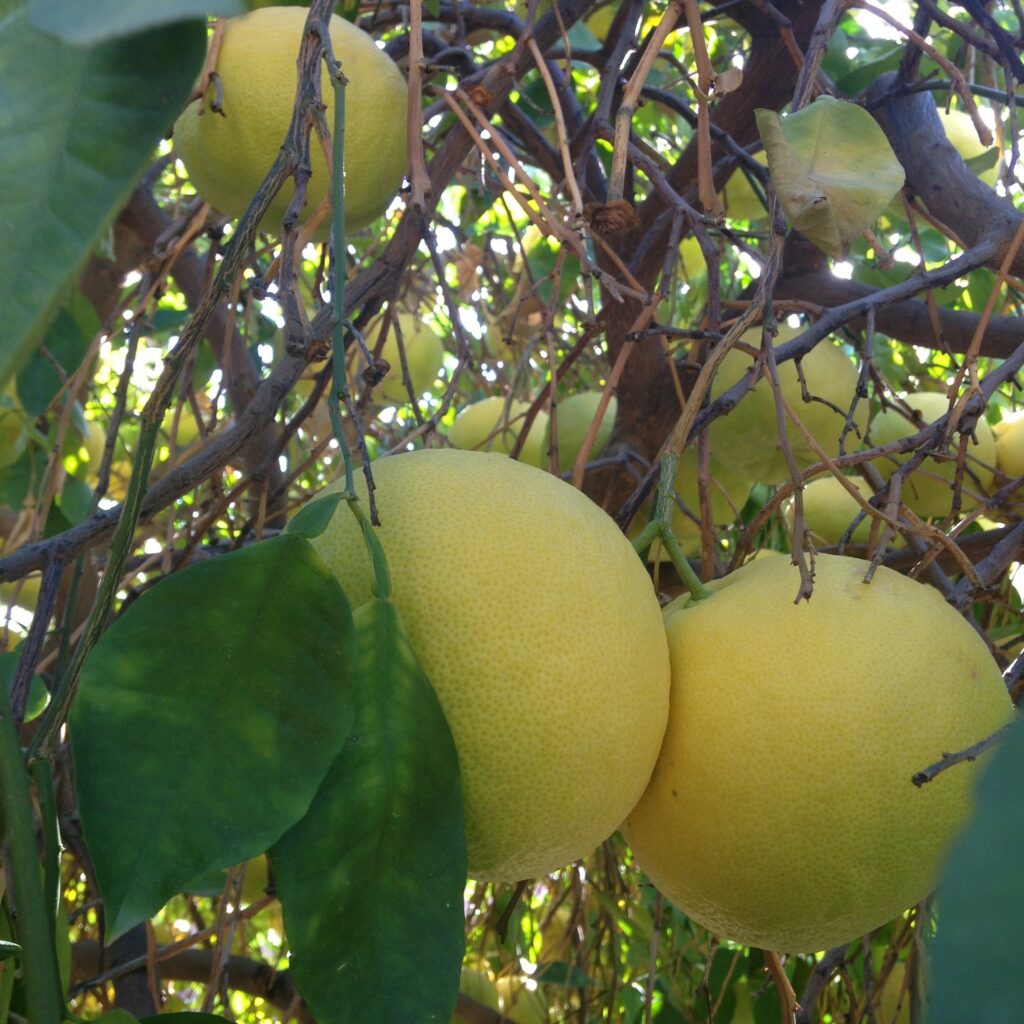- B.N. – Citrus paradisi
- Family – Rutaceae
- Origin – West Indies
- Citron –Persian Apple
- Glucoside present – Hespiridin
- The aroma of grapefruit – Nootakatone
Watch Lecture Video
- The ancestor of grapefruit is the shaddock or pummelo ( C. grandis).
- It was separated from Pummelo in 1830 by James Macfadyen.
- This variety is named Grapefruit because its fruits grow in bunches like grapes.
- The slight bitterness in the juice is due to ‘Naringin’, which is said to have medicinal value. (in the prevention of malaria)
Varieties
- Duncan

Grapefruit - Marsh seedless
- Foster
- Red Blush
- Triumph
- Sharanpur special
- Thompson
- Star Rubi – from Hudson grape fruit through mutation breeding.
Climate
- Dry and arid climate or subtropical where distinct summer and winter.
- Annual rainfall – 15 to 150 cm.
- Grown at an altitude of 500 to 1000 meters or above.
Soil
- Well-draining, deep, and free-acting alluvial soils.
- Calcareous soils containing large amounts of lime remain unsuitable.
Propagation
- Commercially propagated by budding.
Rootstock
- Jatti khatti (C. jambhiri) – South India
- Karna khatta (C. karna) – North India, UP & Assam.
- Carrizo and Troyer – In Punjab
Planting

- Pits of size 60-75 cm3 are dug at a distance of 6×6 to 8×8 m.
- Planting is done at the beginning of the monsoon.
Irrigation
- First irrigation is done just after planting.
- It should be done at an interval of 10 days in summer and at an interval of 10-15 days in winter.
- Adequate soil moisture should be maintained during flowering and fruiting stages.
Manure and Fertilizers
- Generally, fertilizers are given thrice in a year i.e. December-January, June-July, and September-October
- FYM is given in June-July or September-October.
- N:P:K – 600: 400 : 600 g/tree
Training and Pruning
- Young plants are supported so that they can develop fully.
- Water sprouts, and weak, crisscrossing branches are cut from time to time.
Harvesting
- Grapefruit flowers and fruits once a year at the beginning of spring (March) under the North Indian climate and fruits mature after about eight to nine months in the following November-December.
- Fruits are harvested when their colour turns from green to yellow.
- Fully ripe large-sized fruits are picked from time to time.
Yield
- 7 to 10 years 200-300 fruits/tree
- 20 years – 500-1000 fruits/tree
Difference Between Grapefruit and Pummelo
|
Grapefruit |
Pummelo |
|
B. Name – Citrus paradisi |
B. Name – Citrus grandis |
|
Bigger than orange but smaller than pummelo |
Larger citrus spp. |
|
The shape of the fruit is round |
The fruit is teardrop shaped |
|
The color of the fruit is reddish yellow |
The fruit color is yellow-orange |
|
The fruit has smoother skin |
Fruits have slightly pitted, and contain oil cells that are visible as tiny green spots. |
|
Fruits are born in clusters (like Grapes) |
Fruits are appearing singly |


References cited
- Commercial Fruits. By S. P. Singh
- A text book on Pomology, Vol,1. by T. K. Chattapadhya
- Tropical Horticulture, Vol.1, by T. K. Bose, S. K. Mitra, A. A. Farooqui and M. K. Sadhu
